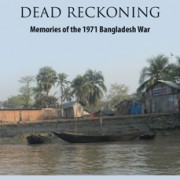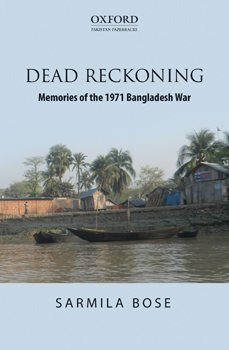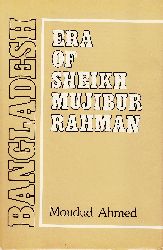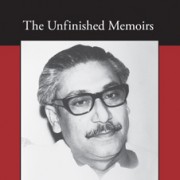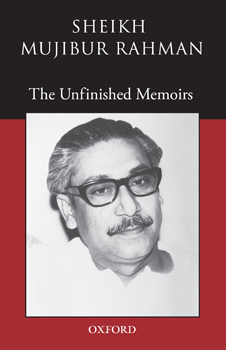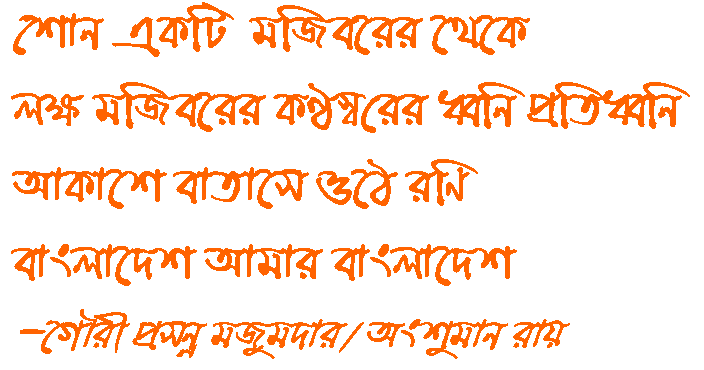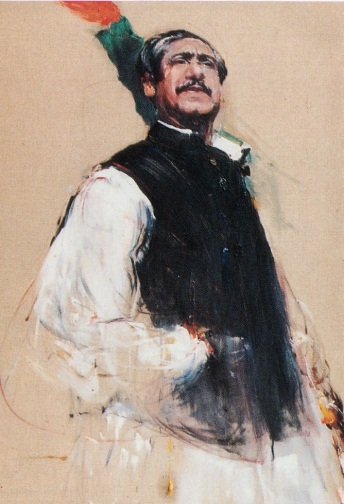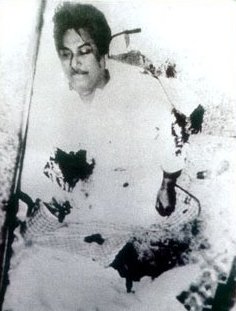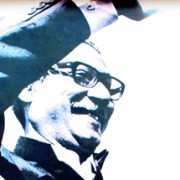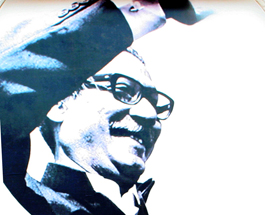
Bangabandhu
Bangladeshi cine production and distribution company, Vibgyor Films is planning to undertake a new project of an English feature film named BANGABANDHU, which will be based on the life of Bangabandhu Sheikh Mujibur Rahman, the founding father of Bangladesh. Theme of this planned film will be similar as English feature film named Gandhi, which was based on the life of Mahatma Gandhi. Ben Kingsley played the role of Mahatma Gandhi in this film.
Earlier some Bollywood [Indian film industry] producers planned to make a film on the life of Bangabandhu Sheikh Mujibur Rahman. At that time, it was even rumored that, Bollywood king, Amitabh Bachchan was going to play the role of Bangabandhu. Self-exiled Bangladeshi columnist, Abdul Gaffar Chowdhury, who lives in United Kingdom announced in July 2009 that he was almost done with starting a full length feature film on Bangabandhu by November same year. Two unknown people were named as directors of this film and Chowdhury told in a press briefing in Dhaka that he was looking for US$ 10 million for making this film.
Name of Bollywood star Amitabh Bachchan was declared to be playing the role of Bangabandhu. Later, Amitabh Bachchan denied this report and said, no such communication has ever been made in this regard.
Since this announcement, Gaffar Chowdhury turned mum on making any further comment or statement on this issue. Many believe that, it was nothing but a cheap stunt by Gaffar Chowdhury.
Hollywood produced movie BANGABANDHU will reach millions of audiences in the world. Though the initial language of this movie will be in English, it is expected that, later it will also be dubbed and sub-titled in Bangla, Hindi, French, Spanish, Russian, Chinese, Korean, Hebrew and Arabic.
Bangabandhu Sheikh Mujibur Rahman led the war of independence of Bangladesh in 1971. He became the Prime Minister and later President of the country after the independence of the nation from Pakistani occupation. But, in 1975, Bangabandhu was brutally assassinated along with his family members. Bangabandhu’s daughters, Sheikh Hasina [current Prime Minister] and Sheikh Rehana luckily survived the assassination, as both were in Germany at that time.
Trial into the assassination of Bangabandhu Sheikh Mujibur Rahman ended few years back. Few months back, few of the imprisoned killers of the founding father of Bangladesh were hanged. But, till now, a number of self-proclaimed killers of Bangabandhu are absconding in various countries, such as UAE, Pakistan, Libya, United States and Canada. It is even learnt that, few of the absconding killers of Bangabandhu Sheikh Mujibur Rahman are shuttling in various countries such as Hong Kong, China, Syria, Lebanon, Iran, Cambodia, Cuba, South American nations and African continent. Bangladeshi government has made numerous appeals to the international in arrest and returning of the self-proclaimed killers of Bangabandhu Sheikh Mujibur Rahman.
Vibgyor Films is already working on the story lineup of the film BANGABANDHU by collecting various facts and information on the life of this legendary Bengali leader in the history of the sub-continent. A small team of the company is dedicatedly collecting information in this regard, which later will be sent to the authorities concerned for approval.
Several internationally acclaimed movie directors, such as Stephen Spielberg, Roman Polanski etc are being contacted for directing this movie while it is assumed that this film will be produced by one of the largest Hollywood film production companies.
Filming of English feature film BANGABANDHU is expected to begin in 2011.
Film production companies in Hollywood, interested in this proposed film are requested to contact Vibgyor Films at: vibfil @ gmail.com
Author : Mahboob Ar Rahman

